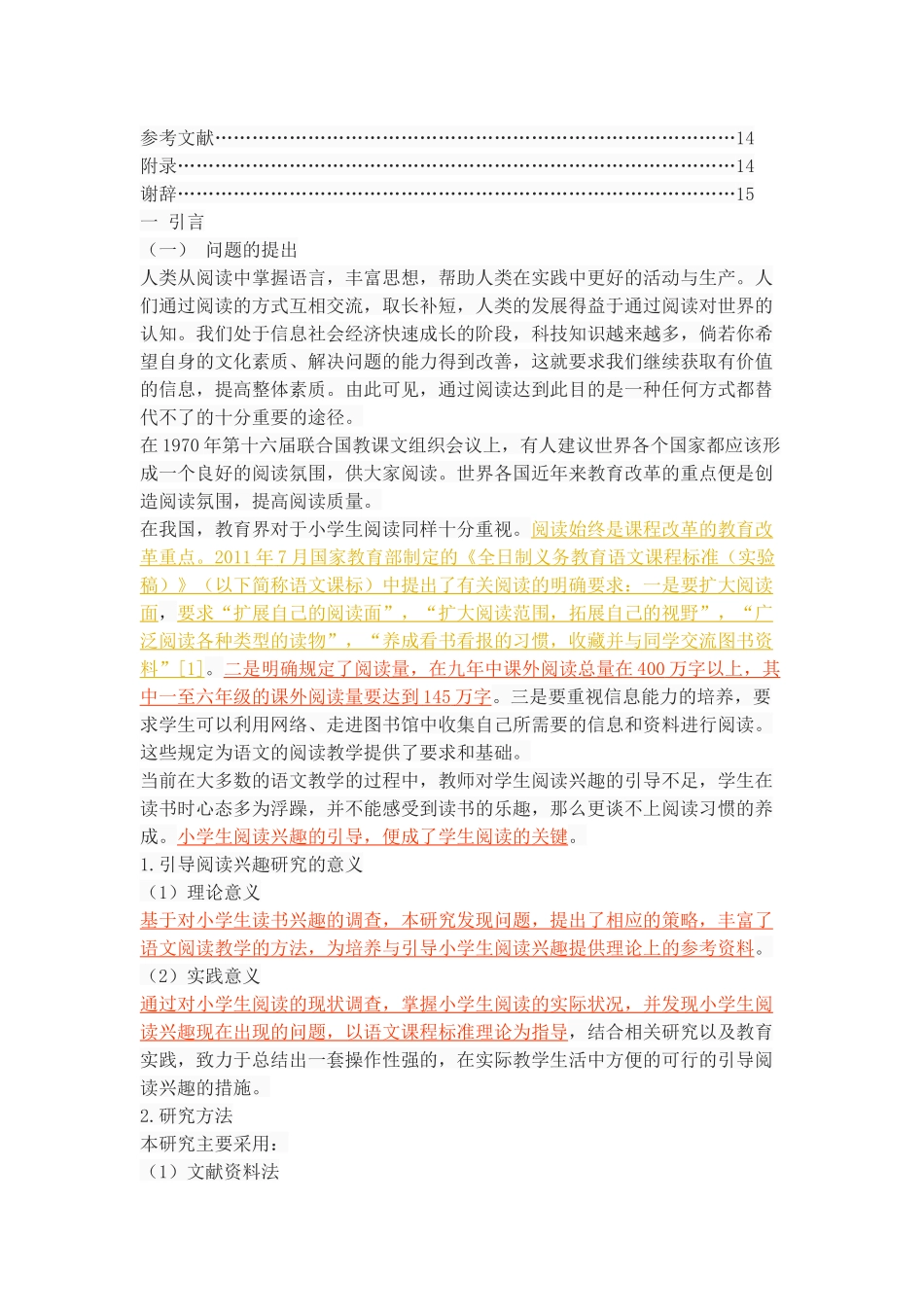摘 要小学语文课程其中重要的内容便是阅读,它是学生语文实践中的重要途径。在《义务教育语文课程标准》中对小学生阅读提出了要扩大阅读的范围,提高阅读文字量,重视信息能力培养的要求,并且倡导学生能够进行操作性阅读,将自己所需要的资料通过去图书馆、上网来收集。但在当前在大多数的小学语文教学中,教师对学生阅读兴趣的引导不足,学生的阅读心态多为浮躁等原因使得大多数学生阅读兴趣并不高,那么更谈不上阅读习惯的养成。因此小学生阅读兴趣的引导至为关键,是促进小学生良好阅读习惯养成的重要途径。本文针对这一情况进行了初步的探讨。全文内容一共分为四个部分。第一部分阐述了学生阅读兴趣引导的研究背景、研究的理论意义与现实意义、研究的方法、相关概念界定。第二部分概述了阅读的内涵与价值。第三部分以在校小学生为对象,从阅读时间、阅读量、阅读的内容、阅读方法、阅读的环境、阅读的心理等进行问卷调查,发现目前小学生阅读存在的主要问题,如:阅读时间短得不到保证,阅读量不足;阅读内容方向不正确;缺乏良好的阅读指导,阅读方法不正确;阅读环境较差;应试性阅读倾向严重同是对以上问题深究其原因。根据当代小学生阅读的状况,第四部分,以语文课程标准理论为基础,结合相关研究成果以及一线教员的教育实践,策划并制定出了针对我国小学生阅读兴趣的引导方案。关键词:小学生;阅读兴趣;引导;AbstractAn important part of the language study in the primary school is reading, which is an important way in the practice of students' language. In the standard of Chinese lesson of compulsory education, it’s proposed that for students in the elementary school, it’s important to enlarge their scope of reading, improve their reading literals, emphasize on the requirement of their information ability training, encourage students to read operationally and get the needed information through the Internet or by going to the library. But currently for most Chinese teaching in primary school, because of the lack of the teachers' guidance for students' reading interest and the impetuous psychology of many students, most students’ reading in...


